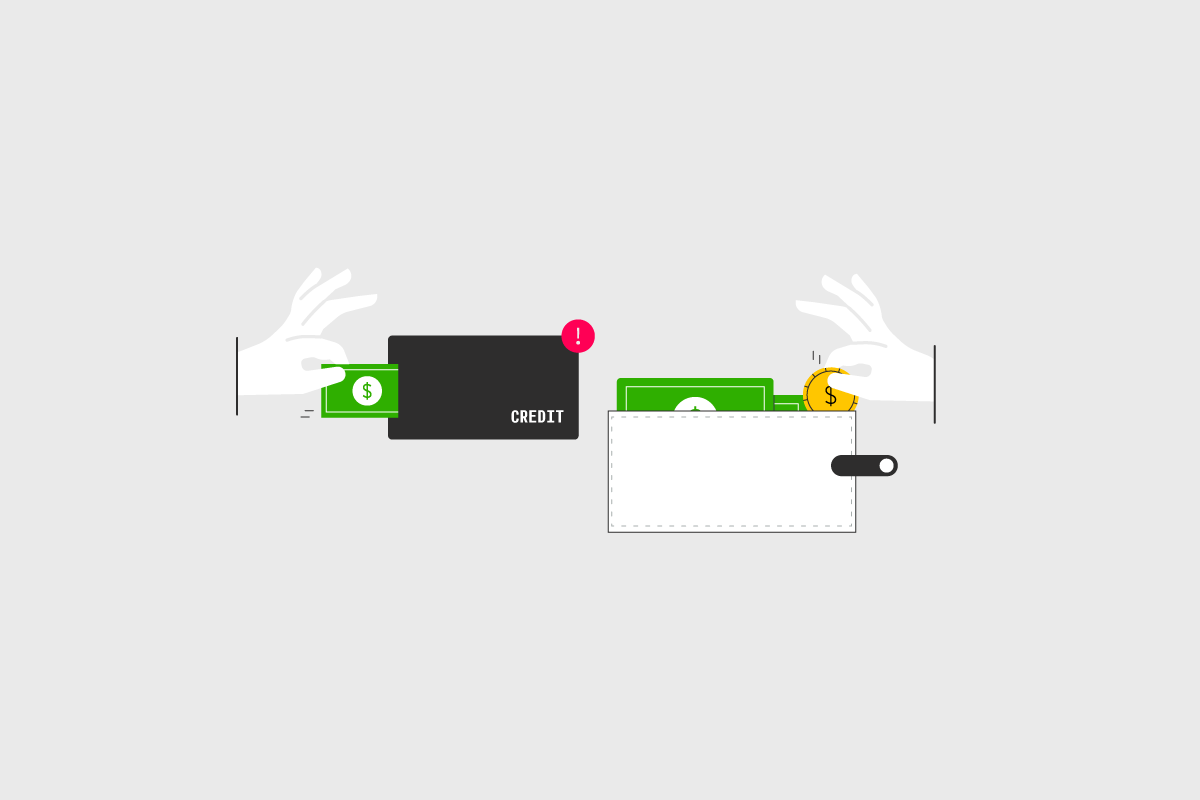Blog
Four kinds of fraud that you may be able to avoid by using Link Money
May 16, 2023
Editorial Team

Fraud is a severe threat that can shatter businesses. Unfortunately, payment fraud is expected to rise in subsequent years, and credit cards are one of the primary causes. In fact, there were 389,845 reports of credit card fraud made to the Federal Trade Commission (FTC) in 2021. To stay ahead of this risk, businesses need to remain vigilant.
Luckily, innovative payment solutions like Link Money are less susceptible to certain types of fraud, giving businesses a way to safeguard their transactions. This article will delve into four types of fraud that are uncommon with Link Money and explore how it's a reliable option to secure your transactions.
1. Card skimming
Through unauthorized access to a consumer's credit or debit card, card skimming is highly threatening to consumers, eventually resulting in financial loss for merchants. In the first half of 2022, there was a 700%+ increase in card skimming fraud in the United States.
What is card skimming? Card skimming is a method of stealing credit or debit card information with a device called a skimmer, often installed in unexpected locations like an ATM, gas pump, or other payment processing machine. The skimmer reads and records the card information when an individual swipes their card through the machine, without the person's knowledge.
If you're wondering how this is possible, skimmers are usually small devices, like a camera or fake keypad, attached to the card slot or payment terminal—it's challenging to detect. With stolen information, criminals can create counterfeit cards or make unauthorized purchases.
In 2022, a customer at a 7-Eleven store in Oakland, California, identified a card skimmer when he attempted to withdraw from the store's ATM. Upon inserting the card, the customer noticed that the keypad buttons seemed unusual and, fortunately, realized something was wrong before the PIN was entered.
Physical cards, debit or credit, generally come with risks; card skimming is an added risk to the consumer and business. For businesses, these transactions could highlight security issues, result in the customer losing trust in the company, or even become a legal liability. Additionally, the customer could dispute these transactions, which could lead to financial losses for you.
How does Link Money help? Link Money's payment solution uses pay by bank, so consumers don't need to use physical cards. Instead, consumers log in directly to their bank account and verify their identity via password, biometric, or multi-factor authentication. The funds are then transferred directly to the merchant’s account.
2. Chargebacks
Chargebacks are the reversal of a credit or debit card transaction by the card issuer or bank, usually initiated by the customer. For example, when a customer disputes a charge on their account and requests a refund from the bank or credit card company, it could result in a chargeback on your end. Some chargebacks are legitimate, like when a consumer doesn’t receive an item they ordered, but some chargebacks are outright fraud.
According to Forbes, most chargebacks are issued for one of these reasons:
Unauthorized or fraudulent use: When a person uses a customer's card without permission to purchase goods or services
Misrepresented goods or services: When the goods or services provided differ significantly from the description or agreement made
Undelivered goods or services: When the customer pays for something but does not receive the product/service or when they pay for a service that is not provided
Unprocessed return credit: When a customer returns an item or cancels a service per the merchant's return policy, but the merchant fails to issue the appropriate credit
Ongoing billing for a canceled subscription: When a customer continues to be charged for a subscription service even after canceling it
Incorrect amount charged: When the charge does not match the agreed-upon amount
There are many aspects to mitigating chargebacks within the merchant's control, such as implementing a customer service policy and providing clear product descriptions to set the customer's expectations accordingly. However, unauthorized or fraudulent transactions are often considered beyond the merchant's control. But that changes with Link Money's Pay by Bank, powered by open banking.
Link Money uses the Automated Clearing House (ACH), which deals in unauthorized returns instead of chargebacks. With ACH, a customer can initiate a return claiming that the transaction was unauthorized, however knowingly attempting to obtain money from a financial institution by misrepresenting whether a transaction was authorized is a federal crime (18 U.S.C. §1344). If caught, the offender may be fined up to $1,000,000, face imprisonment, or both. This leads to a decrease in the number of illegitimate returns.
3. Identity theft
Identity theft is when an individual's personal information, such as name, address, and credit card information, is stolen to make unauthorized transactions—often online. Criminals pretend to be the victim through this information to make purchases.
For example, in April 2023, an identity theft network was identified and arrested in Montreal, Canada; this network was responsible for fraud in 17 countries, causing significant damage to individuals and businesses worldwide.
The various forms of identity theft in a business are as follows:
Data breaches: When a cybercriminal hacks into a business's database and steals sensitive customer information, such as credit card numbers, social security numbers, and other personal information.
Insider theft: When an employee or contractor with access to sensitive information steals customer data and sells it to fraudsters or uses it for personal gain.
Social engineering: When a fraudster poses as a legitimate business or customer service representative and tricks the victim into revealing sensitive information, such as passwords, account numbers, or other personal details.
Malware: When a business's computer systems are infected with malware that allows a cybercriminal to steal sensitive information from the business or its customers.
Unsecured Wi-Fi networks: When a business fails to secure its Wi-Fi network, making it easier for cybercriminals to access sensitive information transmitted over the network
Most sources of identity theft from businesses are related to security concerns. Based on open banking protocols, Link Money utilizes advanced technology such as an application programming interface (API), encryption, and machine learning for identity verification and transaction authorization. These measures reduce the risk of identity theft-related purchases and protect customer data and businesses from the consequences of fraudulent transactions.
4. Phishing
Phishing is a cyber-attack where a fraudster sends a fake message that appears to be from a legitimate source, often containing a link to a fake website, to trick the unsuspecting recipient into providing sensitive information.
"If a person or a company reaches out to you and you didn't contact them first, you probably should ignore it," says Bree Fowler. "It doesn't matter if it's an email saying that your Windows subscription has expired, a text from your bank saying that your account has been compromised or a post on Instagram pushing a great deal on designer sunglasses."
For businesses, phishing can be a significant threat as it can result in the theft of sensitive information, financial loss, and damage to the company's reputation. Additionally, this scam could happen either on the consumer's or merchant's side.
For example, suppose an employee falls victim to a phishing attack and provides their login credentials. In that case, the attacker can access the company's internal systems and steal sensitive data or plant malware. When a consumer falls prey to a phishing attack, they share their personal information with a criminal, potentially resulting in fraudulent transactions with your business.
To ensure security, businesses should educate employees and implement measures to enhance security.
Link Money, supported by open banking, provides an innovative and highly secure method for conducting financial transactions. For example, merchants are authorized before someone is able to make payments, protecting customers. On the flip side, merchants benefit from multi-factor authentication, so even if a fraudster gets a customer’s username and password, they also need to have access to the face, phone, or email address of the individual to verify the transaction—this makes phishing attacks much harder to execute, even if criminals trick customers into providing login credentials.
Build a better business with Link Money
Ultimately, fraud prevention should benefit both the customer and your business. Link Money takes extensive measures to ensure security for both parties, and also instills customer confidence in your company for protecting their data.
Contact Link Money to learn how we can help your business enhance security and prevent fraud.